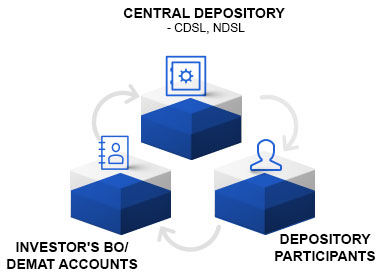
Table of Contents
NRE vs NRO Account
Many Non-Resident Indians (NIRs) often face the situations of maintaining a rupee account in India. An NRI can open two kinds of account in India— an NRE (Non-Resident External) account and NRO (Non-Resident Ordinary) account. Both the account comes with its own objectives. So let’s see amongst NRE and NRO account, which suits the best.
What is an NRE Account?
The NRE (Non-Resident External) account is an Indian rupee dominated account. This account can be in the form of current, savings, recurring or Fixed Deposit. Indian rupees cannot be deposited into this account, only foreign currency can be deposited. This amount can be converted into Indian rupee at the time of deposit. However, to be able to deposit Indian currency, you must open NRO account. In NRE account there is no upper limit on the transaction amount. This account can be held jointly with another NRI but not with a resident Indian.
What is an NRO Account?
The NRO (Non-Resident Ordinary) account, is a current or Savings Account held in India for the NRIs to manage their Income earned in India. The Earnings could be rent of the house, pensions, stock dividend, etc. This is a good way for account holders to deposit & manage their accumulated rupee funds. In NRO account, foreign currency gets converted into Indian rupees after it gets deposited. An NRO account can be held jointly with another NRI as well as resident Indian (close relatives).
Difference Between NRE and NRO Account
Deposit of Rupee Funds Generated in India
If an NRI/PIO/OCI is earning income in India (such as rent, salary, dividends, etc.,) they are only allowed to deposit it in NRO account. Deposit of such earnings is not permitted on an NRE account.
Joint Holding
NRE account cannot be held jointly with resident Indian, but can be held with another NRI. NRO account can be held both with NRI as well as resident Indian (close relatives), as defined under Section 6 of the Companies Act 1956.
Repatriation
NRE account is freely repatriable (principal and interest earned). But, NRO account has restricted repatriability, which means that permitted remittance allowed from NRO is up to $1 million net of applicable Taxes in one financial year. Here one has to give a certificate from a chartered Accountant along with an undertaking.
Tax Treatment
NRE account is Tax-free in India. Whereas, in an NRO account, the interest earned and credit balances are subject to respective income tax bracket. Moreover, in NRO, wealth and gift taxes are also applicable.
Flow of Funds
Unlike an NRO, repatriation is allowed outside India in any currency for an NRE account
Talk to our investment specialist
NRE V/S NRO Account - A Quick Glimpse
A brief understanding between NRE Vs NRO account.
Parameters like the account type, taxation, rate of interest, exchange rate risk, transaction limit, etc.
| Parameters | NRE Account | NRO Account |
|---|---|---|
| Acronym | Non- Resident External Rupee Account | Non-Resident Ordinary Rupee Account |
| Meaning | NRE is an account of an NRI to transfer foreign earnings to India | NRO is an account of an NRI to manage the income earned in India |
| Account Type | Savings & Current Account | Savings & Current Account |
| Joint Account | Can be opened by two NRIs | Can be opened by an NRI along with Indian citizen or another NRI |
| Transaction Limit | No limit on the amount of transaction | Transaction amount limited to $1 million in one financial year |
| Taxability | Tax-free | Taxable |
| Rate of Interest | Low | Comparatively high |
| Deposits & Withdraws | Can deposit in foreign currency, and withdraw in Indian currency | Can deposit in both foreign and Indian currency, and withdraw in Indian currency |
| Exchange Rate Risk | Prone to Risk | Not Risky |
| Repatriability | Can repatriate | Can repatriate the interest amount, the principle amount can be repatriated within certain limits |
Similarities Between NRE and NRO Account
Both NRE and NRO account can be of any Bank account like a savings account, current account, recurring account or term deposit account. These accounts can be opened either jointly or severally. Nominations are permitted on both the accounts. One needs to maintain an average monthly balance of INR 1,50,000 in both NRE and NRO accounts.
NRE and NRO Account in Mutual Funds
The investment in Mutual Funds has to be in rupee-denominated accounts, as Mutual Funds don't allow investments in any other currency. NRIs can use NRE and NRO accounts for their Mutual Fund investments in India. Funds in an NRE account are repatriable whereas, those in an NRO are non-repatriable.
Conclusion
Both accounts are available for NRI’s to park their hard earned money in India. If an individual wants to manage their income earned in India within the country, you can go for NRO account. If you want to transfer your foreign income to India and also want to avoid tax liabilities, you can opt for NRE account. Individuals can choose as per their needs.
FAQs
1. What are documents required for opening NRE and NRO account?
A: Here are the list of documents required –
- Identity proof - PAN & passport
- NRI status proof - work permit, PIO, OCI, visa
- Proof of residence abroad
- Indian address proof
- Cancelled cheque
- PIS permission letter
2. Who is an NRI under Fema?
A: NRI as per Fema is a person who is a resident outside India, but is a citizen of India.
3. Who is an NRI under ITA?
A: Persons who have been in India for 120 days or less OR is in India for a period of 60 days or less even after completing 365 days in the preceding four years. Therefore, NRIs include those individuals who visited India for less than 120 days in a financial year.
4. Can students open NRE & NRO Account?
A: Students who are pursuing higher education abroad and continues to stay abroad can have a NRE & NRO account.
5. Can INR make deposits in NRO & NRE Account?
A: Funds originating in India i.e. in Indian Rupees or INR can be deposited only in NRO Accounts and not an NRE Account. However, funds originating from a foreign country (foreign currency) can be deposited in both NRE and NRO accounts.
6. What are the types of NRI Accounts?
A: Some of the major ones are-
- Non-Resident Ordinary (NRO) Savings Account/ Fixed Deposit Account
- Non-Resident External (NRE) Savings Account/ Fixed Deposit Account
- Foreign Currency Non -Resident (FCNR) Fixed Deposit Account
All efforts have been made to ensure the information provided here is accurate. However, no guarantees are made regarding correctness of data. Please verify with scheme information document before making any investment.












